Posts Tagged “student athletes”
I received a Division I Lacrosse scholarship by accident…said no one ever.
Posted by SportsForce in College, High School, Lacrosse, Prep, Recruiting, Tips & Advice, tags: College Coaches, college lacrosse, college lacrosse recruiters., college recruiting, college recruiting effort, college recruiting game plan, hard work, high school lacrosse, lacrosse practice, natural talent, recruiting success, student athletes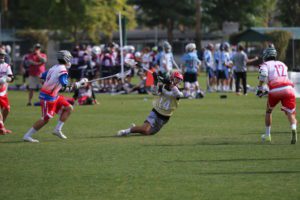

Raw talent and athleticism can dominate a 7/8th-grade lacrosse game, and we’ve all seen that in action. When you get to higher levels, however, the players that are putting in the work to improve their game quickly catch and surpass these “naturally good” players who don’t put as much work in to get better. Players who are building their strength and endurance in the offseason, who never let their stick go untouched in any given week, who show up to practice to train hard, and who take care of their health and nutrition habitually eventually rise to the top.
Hard work beats talent when talent doesn’t work hard
We’ve all heard the stories about Michael Jordan being cut from his high school basketball program as a freshman, Steph Curry getting very little interest from college coaches, and Tom Brady being drafted in the NFL’s sixth round, 199th overall. If they simply accepted these circumstances and believed they just “didn’t have it”, where might they be today? Certainly not among the greatest performers their sports have ever seen.
So here are some things that highly successful athletes do to stay ahead:
1. While the world sleeps, they work
How many times do you catch yourself saying “I just ran out of time today,” making an excuse for why you didn’t go to the gym, or go for a run, or hit the wall for some stick work? I know I have. Well here is your solution… get up early, perhaps 5:00/6:00 am, and get it done first. I promise you all Fortune 500 CEO’s and Olympic athletes don’t sleep in or watch 4+ hours of TV a day, or waste hours on social media.
Think about it, do you want to be someone who reads about other people’s greatness or do you want to be someone that others read about your greatness? You decide. I think you will find that the morning calm before the world wakes up is a magical and spiritual time, and there is no greater feeling in the world than heading off to school, or your work day, knowing that you have already achieved something great… a long run, gym, or yoga class.
2. Their work creates confidence, so when life presents an opportunity, they seize it without hesitation
Opportunity is defined as “a set of circumstances that makes it possible to do something.” I am sure you all are recognizing the big opportunities– invitation to a recruiting camp, showcase, etc. But let’s really break it down and focus on the little opportunities that you may be overlooking that have the greatest impact. The opportunity to hit the gym with your parents or friends, the opportunity to play in a box league, the opportunity to reach out to a local collegiate player to train with them, the opportunity to stay late after practice and help a teammate or yourself work on your dodges, or stick handling, or shooting.
It is these little opportunities that will raise your game immensely. Gen. Colin Powell, former Secretary of State said “If you are going to achieve excellence in big things, you develop the habit in little matters. Excellence is not an exception, it is a prevailing attitude.” What he means by this is that if you are going to succeed on the grander scale you need to first succeed on a smaller scale. Start your day with making your bed. It is a little achievement but it is nonetheless an achievement and a start.
3. They create routines and hold themselves accountable
We all know routine is important, but we can all get a calendar and map out our week and think, wow, I am going to get so much done this week. But what I want you to do is get to the END of your week and say, “Wow, I GOT so much done this week!”
Look back and see how many actions you were able to cross off. This is accountability, and I promise you there is no one in your life that is going to force you to do anything. Your parents are great advocates of yours, along with your friends and teammates, but at the end of the day, the only person that can make you get up and run farther, or faster, or do a third set of squats IS YOU. This is a true testament to how bad do you want to be great? I guarantee all those lacrosse players you are watching on TV seldom had to be told to run harder, run farther, or lift more. They do it because they want to be great!
4. They fill their bodies with proper nutrients and a lot of it
Fuel. Cars need it to run, engines machines need it to run, and we ABSOLUTELY need it to run. But you have to remember that it needs to be the right fuel. If you just went to the gym and worked out hard, then reward yourself with a healthy snack and some hydration. Don’t ruin everything you have achieved in the gym by getting drive through after. That is being counterproductive.
Remember that you are an elite athlete and may look a little different than your non-athlete friends. I am here to tell you that more is OK! You are strong and fit, and your body needs more because you are burning more. So don’t feel bad about finishing your whole sandwich, yogurt, apple and peanut butter, Cliff bar, banana, and huge water. You needed it! Because at the end of the day, if you thrive at the first three–getting up early, seizing the opportunity, and being accountable, then you will never reach your potential if your body cannot keep up. Eat healthy, eat often and hydrate all the time! Be that person in the class that always has a water bottle with them.
5. They get the most out of every practice, drill, scrimmage, and game
You’ve gone to practice thinking about your upcoming math test, you’re tired from yesterday’s game, you don’t like Monday training sessions, you deserve a day off…
Highly successful athletes have bad days too, but they never give a bad effort or let themselves dog it through a drill or practice feeling sorry for themselves or making excuses. We’ve already talked about seizing opportunities, but what if your opportunity comes on a less-than-ideal day for you? Mental fortitude is another trait that is not inborn but learned and trained. It’s an everyday attitude that is built through a consistent level of effort, regardless of the circumstances.
I went to West Point and played for legendary college coach Jack Emmer. One of the many lessons I took from him was that you have to deal with what comes up and power through it if you want to win. He would say, “If we lose, there’s no asterisk next to this game because….” Fill in the blank:
“We had an Army Physical Fitness Test this week” / “It snowed 18 inches on our field” / “The streets outside our facility are flooded” / “You have a 20-page paper due”
I could recite a long list of things I heard from Coach Emmer over my four years at Army, but the lesson it left us with is that you cannot let outside factors affect your mental and physical preparation to meet your opportunities to excel. Try to use the energy from all the frustration or stress to fuel your focus during your training session or event…every thought you entertain that does not feed your success actually hampers it.
Remember, practice doesn’t make perfect…perfect practice makes perfect.
Whether you fall into the “natural talent” category or not, success at the highest levels of anything in life will require your time, effort, and focus. Make yourself better at every opportunity, and enjoy the growth you’ll achieve, knowing that you’re ready for your opportunity when it presents itself. It’s truly just up to you…do you want to think about the excuses you have or the success you want?
Podcast Episode 2: The recruiting game has changed
Posted by SportsForce in Audio Clips, College, High School, Prep, Recruiting, Tips & Advice, tags: athletic scholarship, College Coaches, college recruiting, college scholarship, collegiate athletes, high school athletes, Podcast, recruiting process, sportsforce, student athletesPodcast Episode 1: Why Recruiting is Earlier, More Competitive & Expensive
Posted by SportsForce in Academics, Audio Clips, College, High School, Inspiring Stories, Prep, Recruiting, Tips & Advice, tags: College Coaches, college fit, college recruiting, college recruiting budget, collegiate athletes, high school athletes, NCAA division levels, Podcast, recruiting process, sportsforce, student athletesDo you have an “off-season”?
Posted by SportsForce in Lacrosse, Tips & Advice, tags: athletic scholarship, College Coaches, college lacrosse, high school lacrosse, lacrosse club team, lacrosse players, lacrosse tournament, recruiting process, sport scholarship, student athletes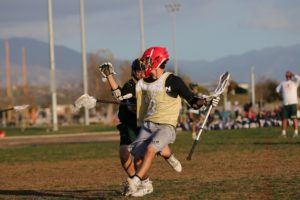

In the last decade or so, a number of camps, showcases, tournaments and club teams have grown exponentially. Year-round lacrosse has become the norm, even in colder weather states. This includes play for both high school programs and club teams. With this trend of the ever-expanding season, there has been an increase in a number of players either getting injured or burning out at a young age. In this regard, the volume and accessibility of events, teams, and programs aimed at aiding with development and providing exposure to college coaches has been both a blessing and a curse.
With this newfound accessibility and today’s technology, more players are getting opportunities to be recruited by schools they would have previously never considered, even 10 years ago. Players can be recruited on a national level more easily, which gives student-athletes a better chance to find their best-fit college program. Players are getting more informed on the recruiting process and exposed to the different levels and divisions of college lacrosse. In general, it is easier to find a good athletic/academic/financial match than in previous years.
Our “regular season” is typically where we want to be at our best, as we have a daily practice and can play a brand of lacrosse more like the college game. The challenge that we all face, as both players and coaches, revolves around the schedule. The LEAST convenient and LEAST realistic time for colleges to see you play is during your high school season. Coaches may occasionally be able to make it to a local game or to a game while on a road trip, but they are consumed with their own seasons, which puts a live evaluation on the back burner. So naturally, coaches are most actively recruiting and evaluating from late May-January. As it happens, the bulk of quality recruiting showcases and tournaments are scheduled during that period as well.
The most elite professional athletes in the world have a schedule that includes stretches of time devoted to rest (not complete inactivity, but a break from the repetitive motions required to compete). It’s literally scheduled into their training plans by most professional sports teams’ training staffs. So why do so many high school lacrosse players think it’s ok to have a longer season and less rest than professionals? High school athletes are not done growing and developing. They have likely not prepared themselves physically to handle the strain they are putting on their bodies. They haven’t given their bodies any sufficient, extended period of time to heal, recover, and grow.
It’s a good idea that physical and mental rest be factored into every family’s plan for their growing student-athlete. Whether it be private lessons, camps, showcases, tournaments, club teams, training programs, or other specialty events, sometimes the correct answer is no. Families are dedicating increasing amounts of time and money every year hoping to find that golden ticket at the next event that gives their son a lacrosse scholarship. It is not uncommon to see high school players who never take a break from playing tournaments, high intensity camps, or other showcases for longer than a few weeks.
So what is the solution? These events/teams are not going away anytime soon, and likely they will only continue to increase in number and frequency. The burden of this responsibility really lies on players and their families to make smart, responsible decisions. Each player’s calendar will likely be unique to his situation.
Here are some tips to help set you up for success and health…
- Plan your calendar in advance for the entire year. Start with the active playing seasons (high school/club) and carefully select additional events and training as they fit in your schedule.
- Do not enter an event where you are expected to perform at max speed/intensity without preparing physically. Getting ready to play requires at least a week or two of cardio, agility, and flexibility workouts.
- Plan a few periods of consecutive (2-3 minimum) weeks of rest throughout the year.
- Use your down time for strength/conditioning training, stick skills, and light lacrosse activity. Get back to fundamentals and lower intensity drills aimed to maintain and develop skills/mechanics.
- It’s ok to say no. It is flattering to be invited or chosen to play or participate in many events. Sometimes, however, it is not necessary. Plan in advance and try to avoid spur of the moment decisions on events you are not ready for physically, mentally, or financially.
- PLAY MULTIPLE SPORTS! It creates a natural off-season. Even if it is recreational or you will never play in college, it gives your mind and body a break. In most cases, the skills and coordination learned in other sports translates to you being a better athlete and lacrosse player.
Payoff at Division III is Greater Than You Think
Posted by SportsForce in College, Commitments, Commitments, High School, Recruiting, Tips & Advice, tags: academic scholarship, athletic scholarship, college levels, Division I, Division III, Divison II, financial aid, grants, NCAA, sport programs, sportsforce, student athletes, student loans

In our work with families, it’s common for student-athletes to be drawn to the NCAA Division I experience. It makes sense. Whether they are true DI level student-athletes or not, that’s typically the only form of collegiate competition they see or hear about on TV or in the media.
NCAA DI and DII sports programs offer the most competitive landscape for securing roster spots and athletic scholarships. Only about 2 percent of players are offered DI or DII scholarships, and many of these are relatively small amounts. It is extremely rare for DI or DII student-athletes to secure full ride scholarships.
Due to this intense competition, it’s normal for many players at these collegiate levels to ultimately land at DIII schools. According to the NCAA, Division III is the largest division in terms of a number of schools and number of participants and is comprised of more than 190,000 student-athletes and represents 450 colleges and universities throughout the country. Division III is also the only division that does not award athletic scholarships; however, more than 75 percent of Division III student-athletes receive financial aid or have earned a merit scholarship for academic talent and accomplishment.
Although there are many, the three most often repeated benefits our families mention when attending and competing for DIII programs is that it allows the student-athlete:
- To maintain a well-rounded collegiate experience. Although the sports programs are very competitive and place a strong emphasis on winning, there is an opportunity for the student-athlete to participate in extra-curricular activities like semesters studying abroad, student government and Greek life.
- To attend strong academic institutions with advanced and well-positioned internships for future careers.
- To secure significant merit-based scholarships for academics or other special talents they may possess.
Many Division III institutions have extraordinary supplies of money to attract high-performing student-athletes and can offer exceptional value to families. Listed below is a recent email from a DIII soccer family to share as an example:
“Actually, we did quite well with her grants, scholarships, and loans…
She received the following package:
GRANTS/ SCHOLARSHIPS (four-year grants, spread equally over the four years):
- The University Scholar Award – $72,000
- Board of Directors Grant – $33,716
- Residency Grant – $8000
Total Grants: $113,716
PRE-APPROVED GUARANTEED UNIVERSITY STUDENT LOANS:
- $14,000 subsidized (no interest)
- $8000 unsubsidized (very low interest)
Total Loans: $22,000 (to be repaid after graduation and full-time employment)
WORK STUDY:
$6000 – guaranteed position in the federal work study program all four years
So they delivered a total of $141,716, which represents approximately 75% of her entire undergraduate education ($191,064), including tuition, books, room & board.
Another great bonus, based on her major (International Business), is that they will send her abroad her sophomore year… at their cost.
Finally, they guarantee graduation in four years.
As it turns, she was their top female soccer recruit, but we did not know that until after she committed (her new teammates let the cat out of the bag).
Note: She improved her GPA and her SAT scores during the application process, and she promptly notified the University, and they increased her financial package accordingly, which I also liked.
In fact, there is now one other scholarship that she is academically eligible to apply for, but she missed the February deadline (because she hadn’t even visited the school yet then, and they really weren’t even on her radar), so they sent her a letter, and they want her to apply next year (the Provost Scholarship), and if she gets it, she will get another $6000 in scholarship money ($2k per year for the last three years), and they will adjust my payments.
She is very excited for the opportunity, and I hope that it all works out for her. I will keep in touch to let you all know how she does.
Thank you for your assistance.”
Whether your son or daughter has the desire to compete in their sport at NCAA Division I, II or III college levels, Division III institutions may present significant academic and athletic opportunities that you did not know existed.
For a personal college recruiting evaluation and honest estimate of your potential to compete at the next level, contact us at:
Phone: 1.888.9787084
Email: scouting@sportsforceonline.com
Are You Ready for the Summer Recruiting Cycle?
Posted by SportsForce in College, Inspiring Stories, Lacrosse, Off Season, Planning, Recruiting, Tips & Advice, tags: College Coaches, college recruiting, college recruiting game plan, high schoool lacrosse, Lacrosse, Lacrosse recruiting, lacrosse showcases, student athletes, summer investment, summer recruiting, target list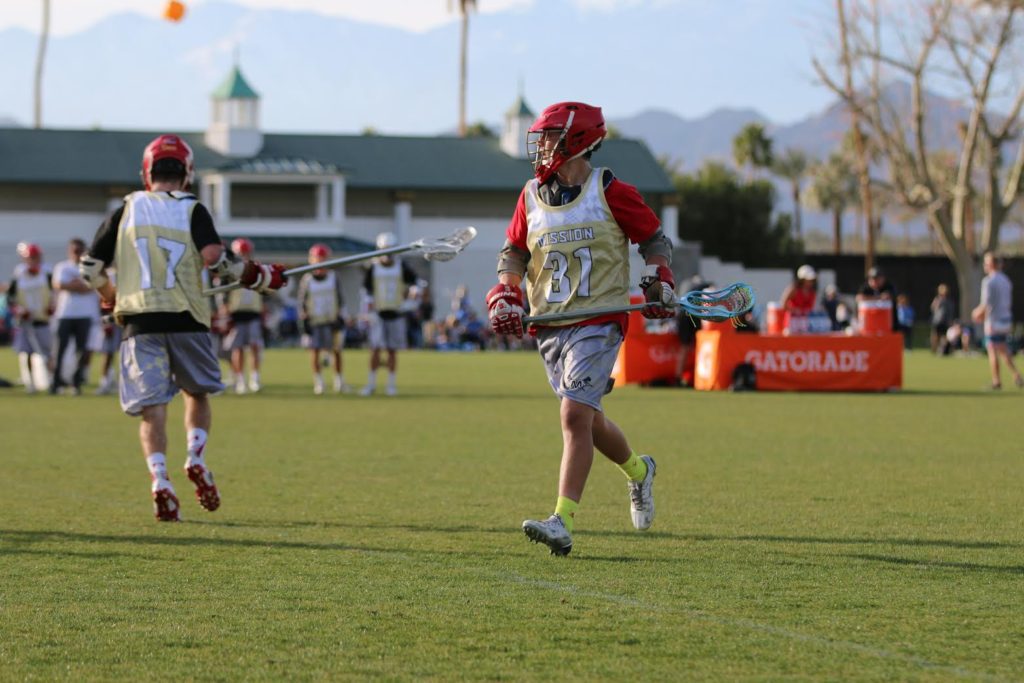

It’s that time again…summer club season.
By this point in the year, most high school lacrosse players have sifted through the multiple club teams, showcases, prospect days, and tournaments to which they have been invited, and tough decisions are being made. Likewise, college coaches are finalizing their plans, allocating precious recruiting resources to various tournaments and events throughout the country.
In this installment of our College Game Plan Education series, we’ll provide a basic overview to get the most out of your summer investment.
So let’s stay at a high level and get started with a few questions:
Have you narrowed the list of schools that you’re interested in?
There are over 350 colleges with NCAA Men’s Lacrosse programs, but only a few schools that align with your academic, athletic, social, geographical, and financial goals. Taking the time up front to focus only on best-fit schools will save you and your family tremendous amounts of time, money, and frustration. We call this developing a “target list” of schools. Factors such as what academic programs are offered (and their rating), school size, location, social aspects, level and culture of the lacrosse program, and the coaching staff must be considered to make an informed final decision and should be part of developing your target list.
What coaches from your target list committed to attend your events?
The questions I most hear from families in late spring revolve around one topic: the BEST teams/camps/showcases to attend this summer to be seen by college coaches. The answer to “which is best?” comes down to how many of your targeted schools will be at an event and whether you can interest them enough to come see you play. For example, a showcase heavily attended by Ivy League schools would likely not be the best use of resources for a player with a 2.5 GPA. If you have the grades, the desire, and the talent to attend Harvard or Princeton, however, it would likely be a great event to attend.
Have you contacted any coaches to let them know where you’ll be playing?
Many players believe that if they’re on the right team or at the biggest showcase, they’ll simply get noticed. NCAA rules limit the amount and type of contact a coach can have with an underclassman (currently 2018 and below), so you can’t expect to have meaningful conversations with them when you see them or meet them in person at events. While accolades like all-star teams and all-tournament teams on your resume can certainly have an impact, a college coach usually arrives at an event with a list of names they’ll be evaluating and those players’ schedules, so it’s important to make personal contact and begin to establish relationships with coaches in the weeks leading up to your events.
Do you have an effective online presence?
Lacrosse is quickly growing into a nation-wide sport, with more and more new players picking up a stick each year. College coaches are flooded with emails and phone calls from high school players that desperately want to attend their school and be a contributor in their program. It’s wise to make it as easy as possible for a coach to evaluate your potential as a recruited player rather quickly. In today’s recruiting landscape, a highlight video, your academic information, and your measurable statistics (height, weight, speed, etc.) are a bare minimum. It is a good idea to also include references and their contact information, your upcoming schedule, a copy of your transcript, and even a personal statement or a list of college goals you’re looking to achieve. Your goal is to establish a relationship with these coaches, so the more you set yourself apart during the initial evaluation phase, the more likely you’ll be recruited by multiple coaches and programs.
Steps to Maximize Your Summer Game Plan
- Develop a target list of potentially best-fit schools and lacrosse programs
- Create/Update/Maintain online presence that markets YOU
- Establish contact with college coaches, interest them in your information
- Be yourself, ask questions, and learn all you can from the coaches you meet
- Have fun playing lacrosse
- Conduct follow-up with interested coaches after each event
Other tips for success:
- Stay hydrated and have a nutritional plan at summer events
- Play hard all the time, you never know who may be watching
- Play smart- it’s still a team game in the summer
- Always display sportsmanlike conduct
- How you look & act between games matters
The common thread in everything we do in the recruiting space is that it’s all about relationships. Choosing a college is an extremely personal and emotional decision for every family, and the investment is likely the largest any parent makes in their child’s future. As such, every player and parent feel the need to be personally comfortable with the school, the campus, and the lacrosse program before committing to attend. Likewise, college coaches earn their living based on how their team performs on and off the field, and the stakes are high, so they have to truly get to know the young men they invite to play for their program. Developing relationships with college coaches should be one of the main goals of your summer, and will require you to formulate a plan to make the best use of your summer lacrosse schedule and the opportunities you will have to be seen and evaluated by your best-fit programs.
College Recruiting has changed…Your Approach may be Outdated!
Posted by SportsForce in College, Inspiring Stories, Recruiting, Tips & Advice, tags: best-fit schools, club team, college coach, College Coaches, college recruiting, college recruiting game plan, college recruiting model, High School, hope strategy, outdated 1990's approach, scholarship, student athletes, success pyramid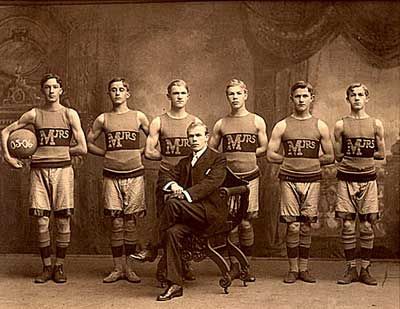

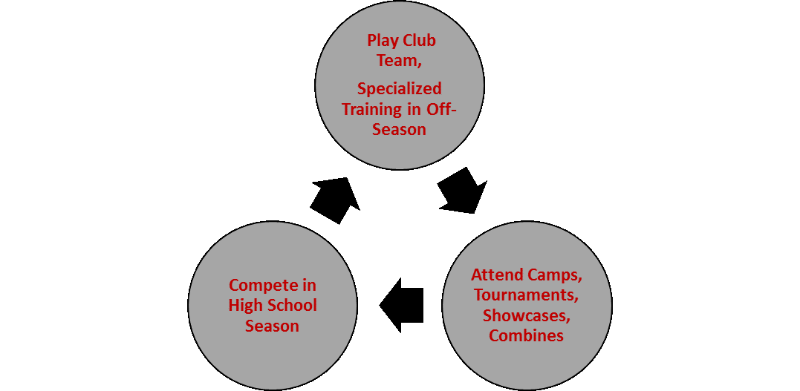

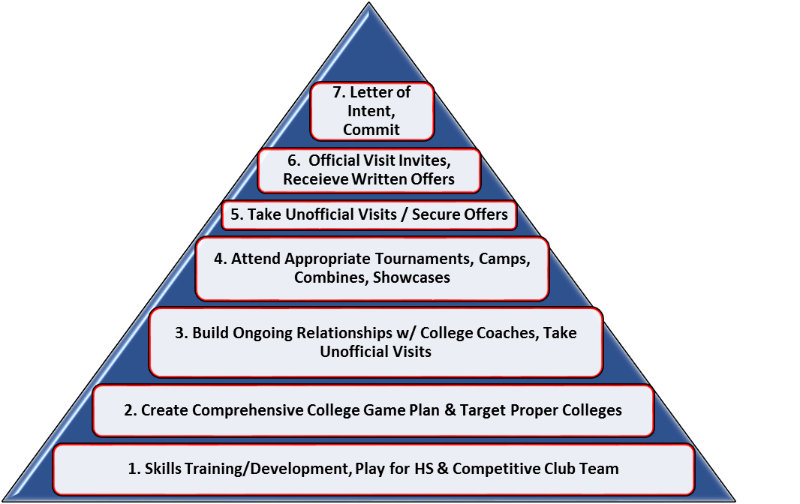

Being a Successful Athlete Doesnt Mean Making it Pro
Posted by SportsForce in Tips & Advice, tags: pro, SKLZ, student athletes, Youth Fitness Magazine

In an article written by Doug Hix of Youth Fitness Magazine, we come to see that being a successful athlete doesn’t mean making it big time. In all reality being a successful athlete is setting personal goals and pushing yourself to your full ability to reach them. Read on to find out more about this:


In my opinion, John Wooden is the most successful basketball coach to ever step on the hard wood. In 2009 the sporting news agreed with me by naming Coach Wooden as the “Greatest Coach of All Time”. His accomplishments are so many that I don’t even want to try to list them all. Of all his great accomplishments and words of wisdom there is something that Coach Wooden said that really inspired me. It’s a quote of his that states, “Success comes from knowing that you did your best to become the best that you are capable of becoming.”
I think this speaks so strongly to what success really should look like. So many of you think success is starting on Varsity, getting a college scholarship, or making it to the pros. Those are successful attainments, however, that’s not the measurement of success in your own life. Success is measured against the ability you have been given and how much you have done with it. Everyone is given a different measurement of ability and your success is dependent upon what you do with your measure (share).
Let me share an example of this for you. During training one day I paired a really fast guy up against an athlete that was a little slower. I said the “loser has to do an extra rep… one, two, three, GO”! They were off racing around cones and the fast guy began to pull away. After about 20 yards of running he had a 3-yard lead, he slowed down as he crossed the finish line and thought he was the winner. The athlete that was a little behind ran all the way through the line and finished strong but frustrated because he thought he had lost. However, I declared the faster athlete the loser and the other athlete the winner. The faster athlete said “what, your kidding right?” I explained to him being a faster athlete does not make you a winner. A winner is someone giving everything they have all the time, not just part time.


I think success first should start with the basic premise that winning or losing is not a measurement of success. A common term used in track and field is PR (personal record). After every track meet in college our coach would announce when someone set a PR and everyone would clap. We knew that person competed at their best and was successful. Every workout and every game focus on setting a PR, then you will always be a winner and possibly achieve more than those with greater ability than yourself.
Coach Wooden was quoted as saying “never mistake activity for achievement”. If you are NOT giving your all every day in every way, then you are not maximizing your ability.
Youth Fitness Magazine was created by SKLZ Team Member Doug Hix, with one mission in mind: to educate parents with knowledge and training tools that will help them make the best decisions for their children’s sporting/fitness routine. To get the latest tips in training and nutrition, information on sports injuries and sports specific techniques, sign up at www.youthfitnessmag.com.
Student Athlete of the Week: Gabby Stone
Posted by SportsForce in Athlete of the Week, Water Polo, tags: Athlete of the Week, Bishop's School, student athletes, Water PoloSport: Water Polo Position: Goalie Class: 2012 School: The Bishop’s School La Jolla, CA
Junior goalie, Gabby Stone, helped her team to a championship win along with a 5-0 record in the TYR Cup at El Dorado High School. Stone allowed just 10 goals in the 5 games of the tournament and was named Goalie of the Tournament.
To view Gabby’s complete SportsForce profile click here – http://www.sportsforceonline.com/athletes/gabby-stone-waterpolo-2012
Scouting report courtesy of SportsForce – Home for College Sports Recruiting Videos, Tips, Tools and Premium Services – www.sportsforceonline.com





